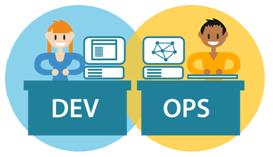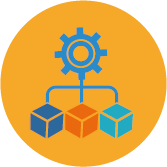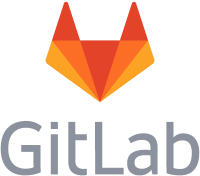


ACCELERATE
software delivery

BALANCE
speed, cost,
quality & risk

REDUCE
time to customer feedback
In business today, there is a premium on the speed with which IT can deliver software and its reliability – and implementing DevOps is becoming a key competitive differentiator.
So how does DevOps keep your organization competitive in today’s climate of digital transformation?
DevOps extends agile methods and collaborative techniques across the entire software development process, to reduce risk, improve software quality and shorten delivery schedules.
Most importantly, DevOps brings agile practices and thinking to operations, aligning software development with business goals throughout the cycle. It engages all participants in the software delivery lifecycle — business teams, architects, developers and testers, IT operations and production. Software is delivered and tested continuously in frequent iterations, shortening the feedback loop. The results? Higher quality software, faster releases, and improved customer satisfaction (*).
(*) State of DevOps Survey, 2014 – “DevOps high performers deploy 30x more frequently with 50% fewer failures”
The traditional separation between Dev and Ops is not working
According to a 2014 IDC Survey, faulty releases account for 70% of all production failures; 30% is faulty code.
- Agile development has increased the rate of handoffs
- Operations can’t cope with the increased workload, while still ensuring production stability
- Defects caught in production take a long time to fix in development
- Code in dev and production soon goes out of sync
Result: a bottleneck in feature delivery – big bang releases, high risk delivery, costly downtime, IT wastage
Why implement a DevOps approach?
A collaborative DevOps implementation can bring real business benefit:
- Meet customer expectations 100%
- Develop new applications for new markets
- Reduce the cost of IT overhead
- Enable innovation at a controlled cost
- Reduce the cost of market entry
- Lower the risk of software change
How to implement DevOps in my organization?
DevOps is as much a cultural change as an adoption of new tooling. However, automation is key to efficiency and sustaining benefits in the longer term.
Create a culture of collaboration
Timely and accurate software releases need efficient communication between business stakeholders, developers, QA staff and production/operations teams right through the project. Collaborative tooling such as GitHub and JIRA help formalize this culture of exchange, improving the effectiveness of teams, their responsiveness to the needs of the business, and ultimately the quality of the software.
Develop organizational agility
Agility allows you to innovate more rapidly and meet changing market expectations. This means shifting from a traditional, waterfall approach to shorter delivery cycles. With a DevOps approach, software changes are delivered more frequently and in smaller units to reduce the impact on the end user and obtain rapid user feedback.
Respond to time-to-market challenges
To stay competitive new features and function must be delivered without delay. IT practices such as Continuous Integration and Continuous Deployment ensure that the most minor of software changes are delivered straight through to test and production environments.

REQUEST A DEMO
Let’s talk about your project!
Speak with an expert


























